Bulgaria is a country in the Balkan region, bordering Romania, Serbia, North Macedonia, Greece, and Türkiye, additionally having a coastline of the Black Sea. Being one of the oldest states on the European continent, Bulgaria is rich in nature, culture, and history. When we decided to visit this gorgeous country, we didn’t know much about it, except for Sofia, the capital of Bulgaria, and Varna, the largest city by the Black Sea in the country. We were so amazed by how interesting and beautiful the country is after our journey there so here are 10 things to know before traveling to Bulgaria!
Disclaimer: These tips don’t necessarily cover all areas of travel as we traveled with a motorhome and didn’t encounter public transport between towns and experiences with hotels or other accommodations. But I hope that these tips will be helpful regardless if you are a vanlifer or any other type of traveler.
Road vignette
If you are planning on driving to Bulgaria with a car, to be able to drive there you will need to purchase a road vignette which costs 13.84 Euros and is active for 1 month. We were able to get the vignette online on the web.bgtoll.bg website which was very convenient. Driving through the country was a very peaceful experience compared to other Balkan countries and the roads were well maintained.
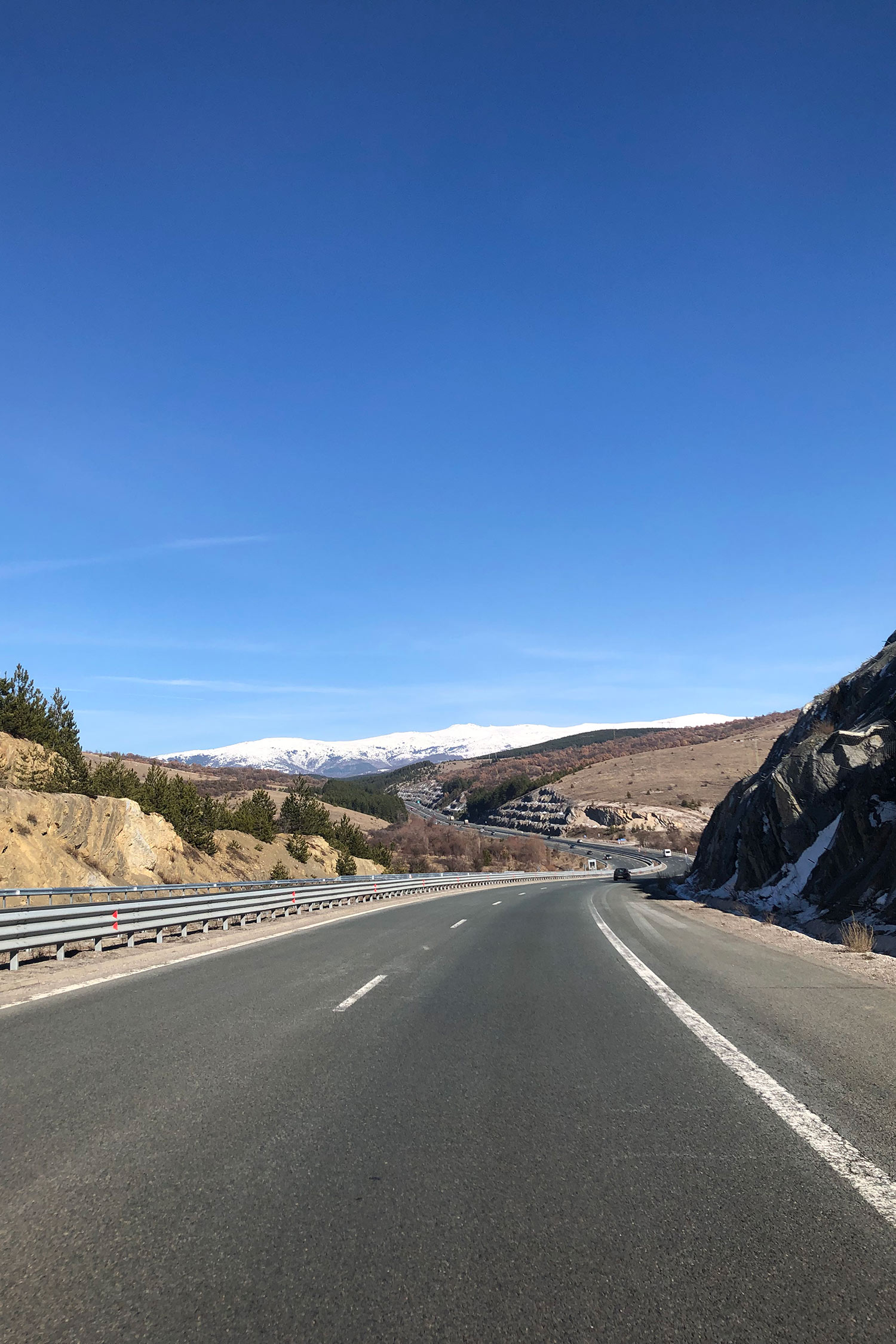
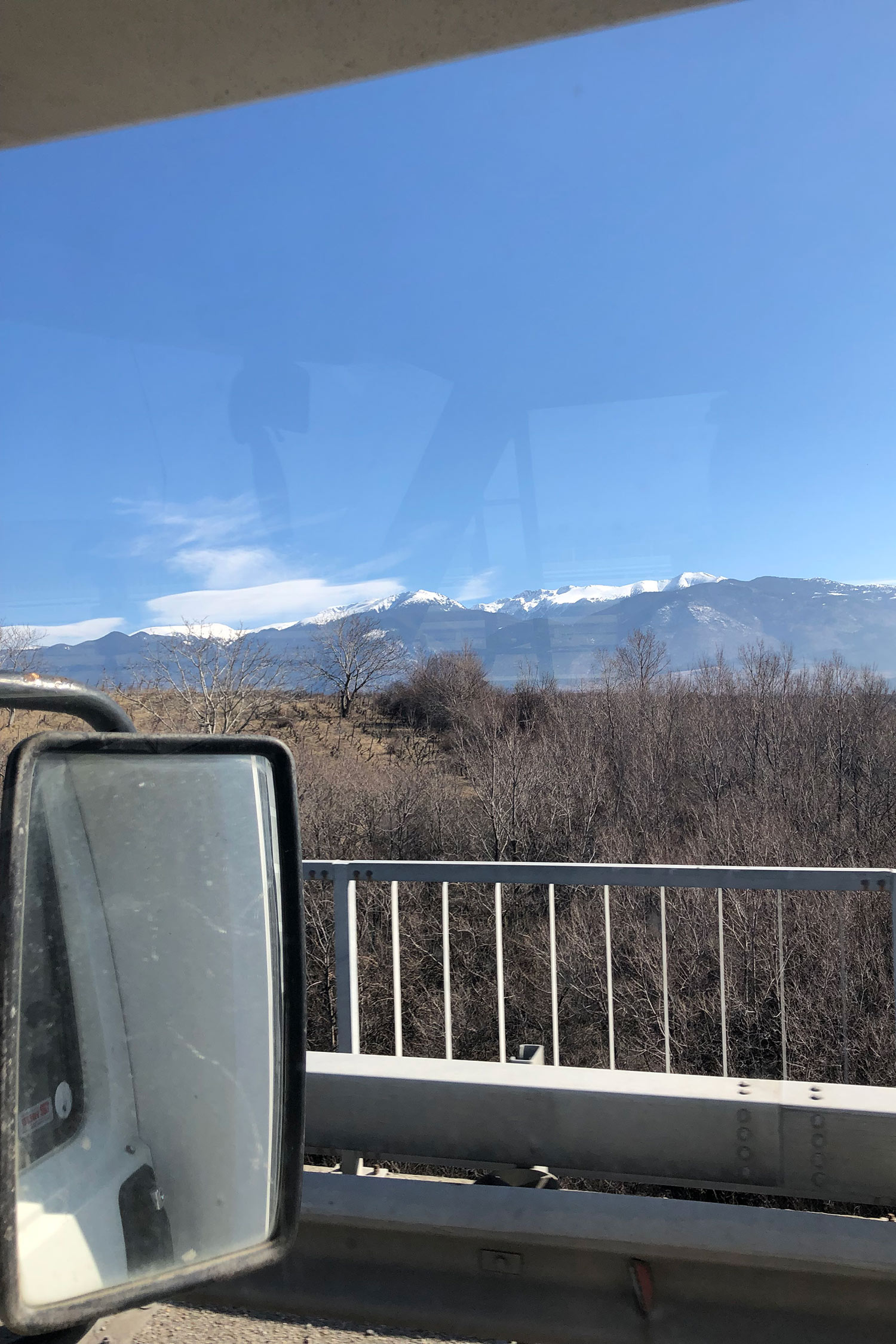
Internet
For internet connection, we used A1 prepaid SIM card for 25.63 Euros that included 50 GB of data for internet which was enough for our almost two weeks there since in a lot of places there is also available free wifi connection, such as, in coffee shops, restaurants, and other public places. The A1 SIM card’s connection was fairly good in cities but in more rural areas the signal was pretty bad but that’s pretty common with most SIM cards.
Food
In Bulgaria, you can enjoy food in restaurants and cafes for very affordable prices and the food is very delicious and in wide variety. If you are planning on cooking yourself, supermarkets in Bulgaria are top quality with fresh produce. While we explored the country, we loved how cheap it was to eat out – you can buy Greek gyros for 3 Euros, large pizza for about 6 Euros, and coffee for less than 2 Euros.
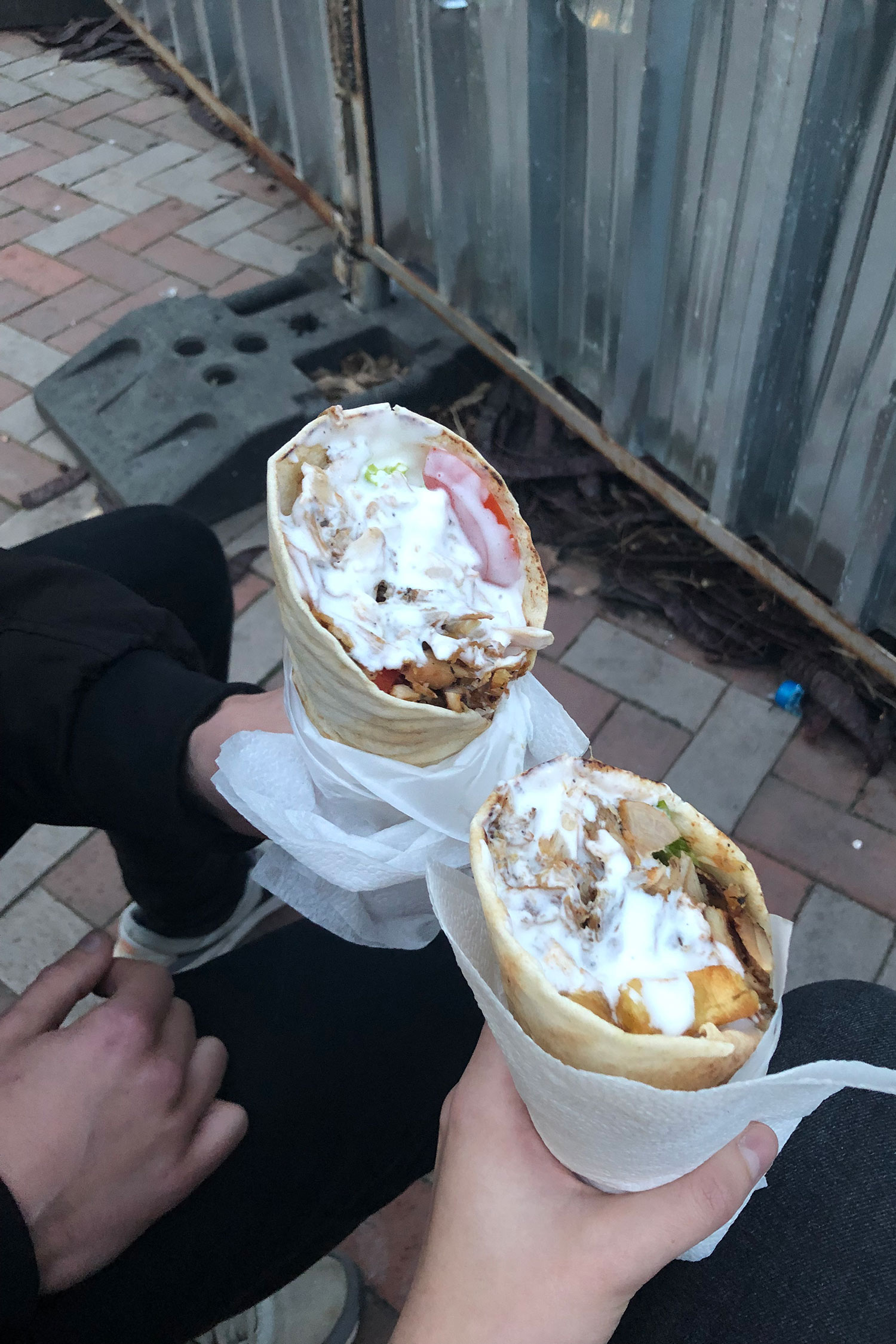
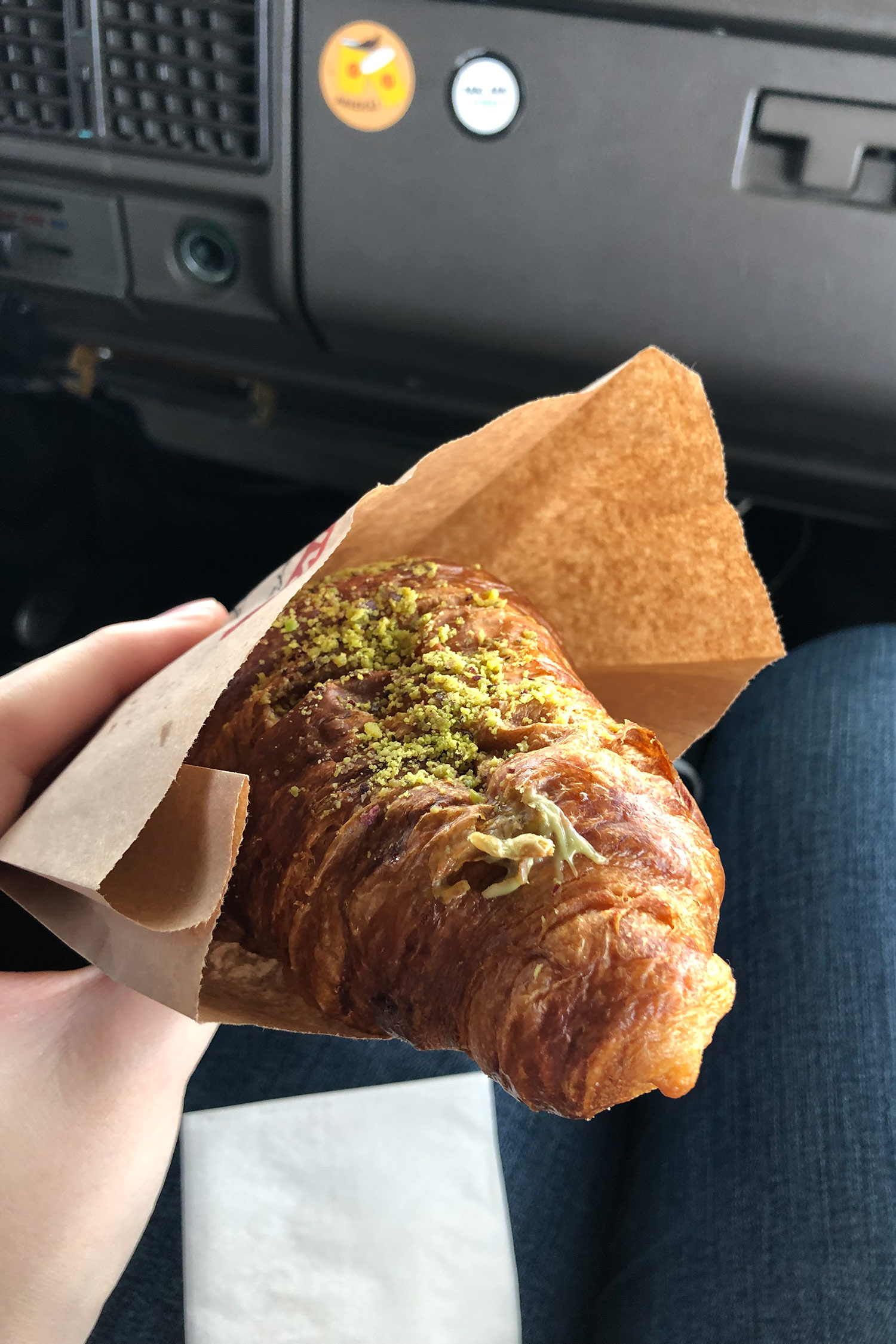
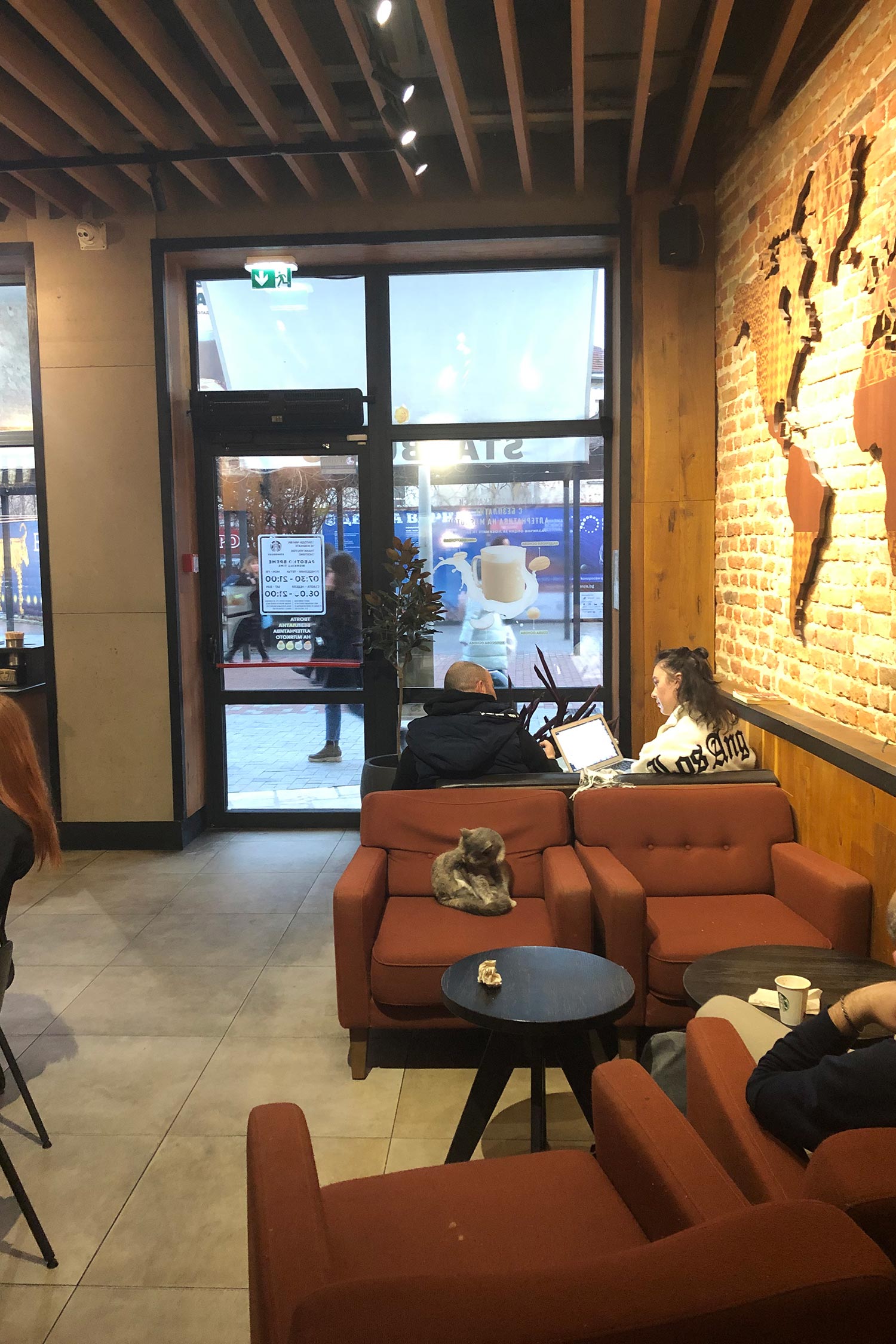
Public transport in Sofia
We were surprised by how convenient and affordable the public transport is in Sofia, the capital of Bulgaria. To use the metro, you can purchase the ticket directly with a credit card at the gates, without using the ticket machines which was so fast and easy, I absolutely loved the system. A similar method is also used on trams, buses, and trolleybuses. The cost for one ticket is 1.60 BGN or about 0.82 Euros. If you are planning on using the public transport in Sofia a lot, you can purchase a daily pass for all types of public transport for 4 BGN or around 2 Euros and the ticket is active for one calendar day. The daily pass can be bought at the metro cash desks, post office, and the Urban Mobility Center, the city department of transportation in Sofia.
Overnight parking
If you are a vanlifer and are looking for places to stay overnight for free, in Bulgaria there are loads of free spots that are even more available in the off-season, especially by the sea. In the two weeks that we traveled through Bulgaria, we didn’t pay for parking at any place. In Sofia, we found a parking spot near a grocery store that was free of cost and safe. To explore the seaside such as Nessebar or Varna, you can park right by the beach although the parking can be full in summertime or at some places you will need to pay for it. But since Bulgaria is such an affordable country to travel to, the parking shouldn’t be too pricey.
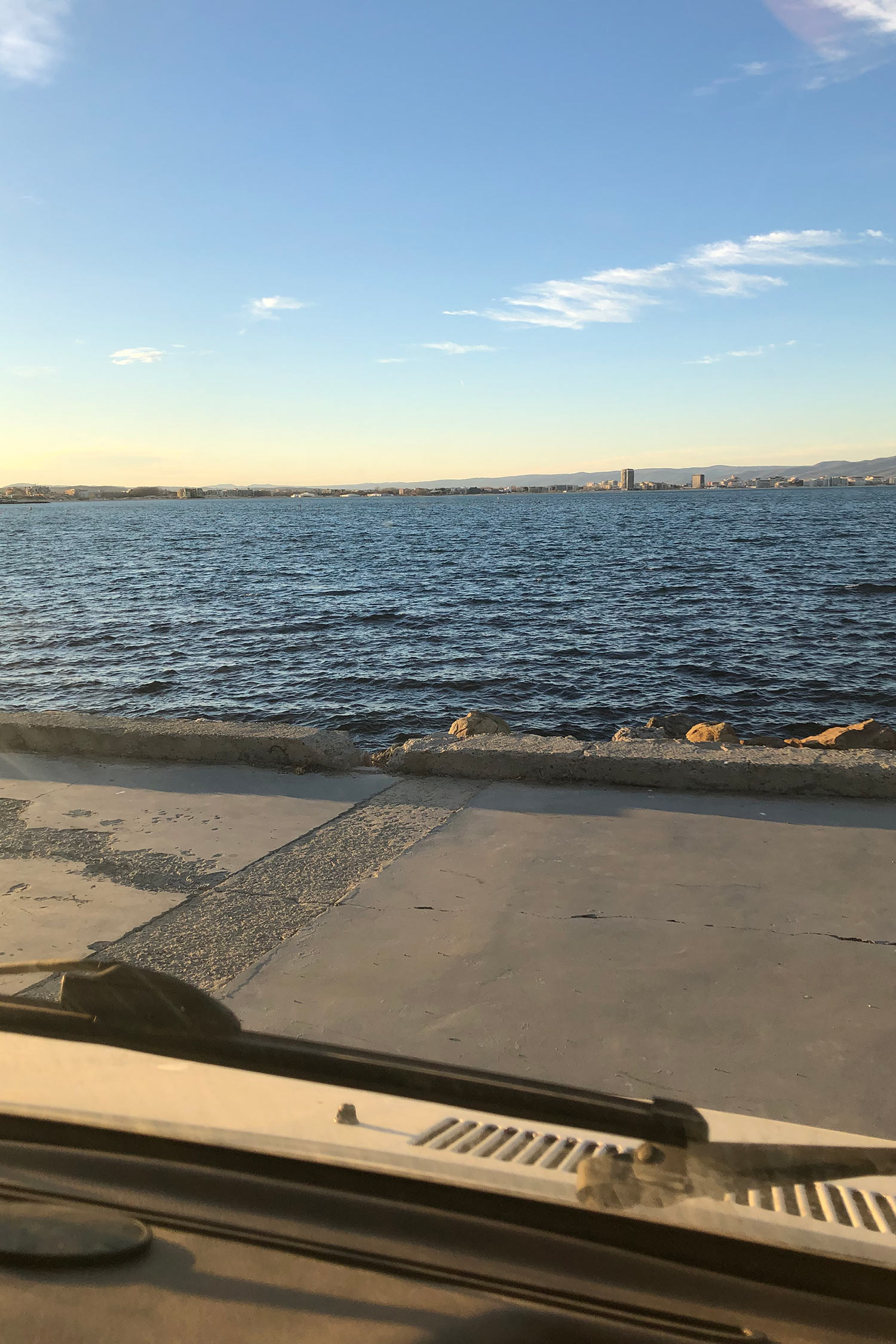
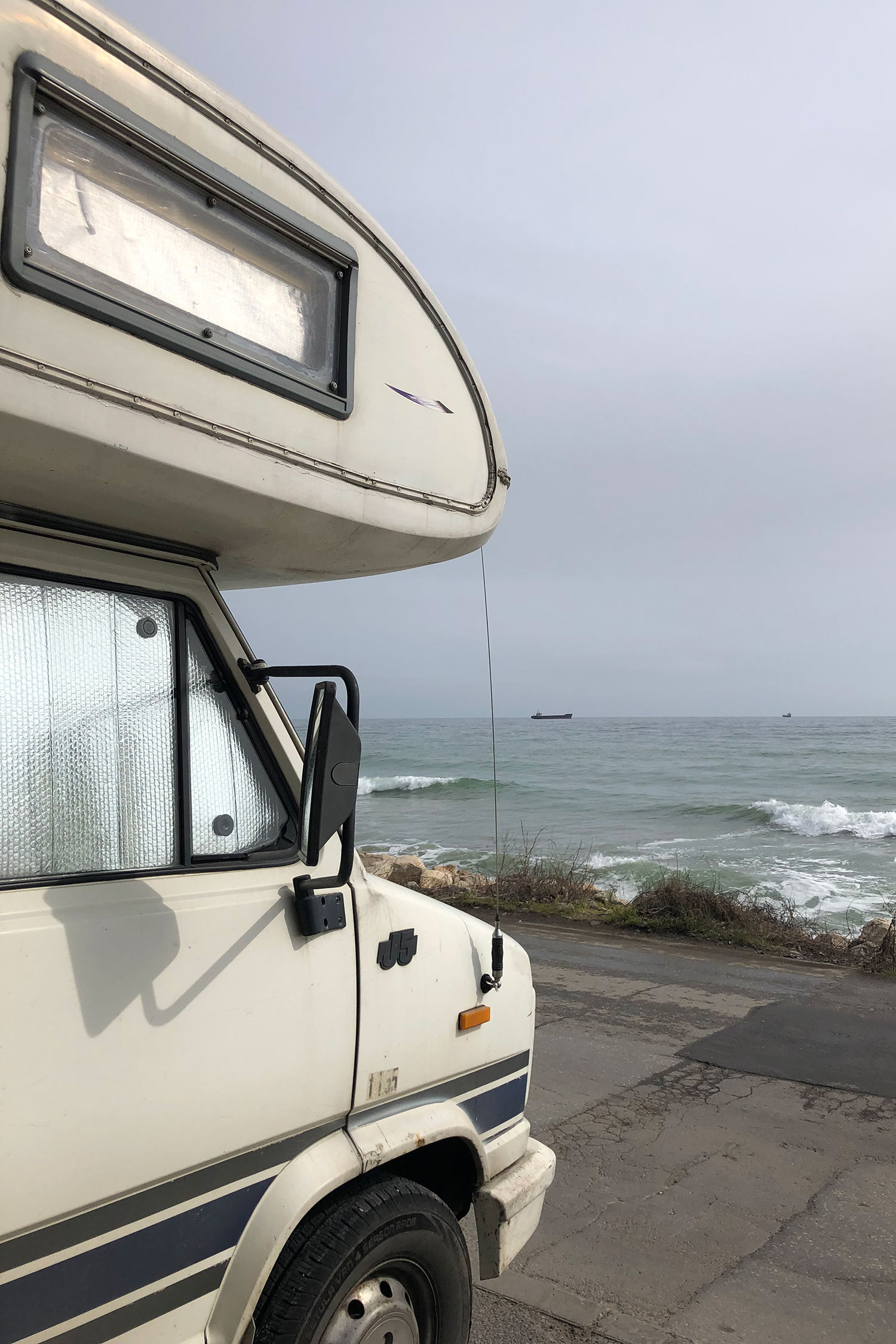
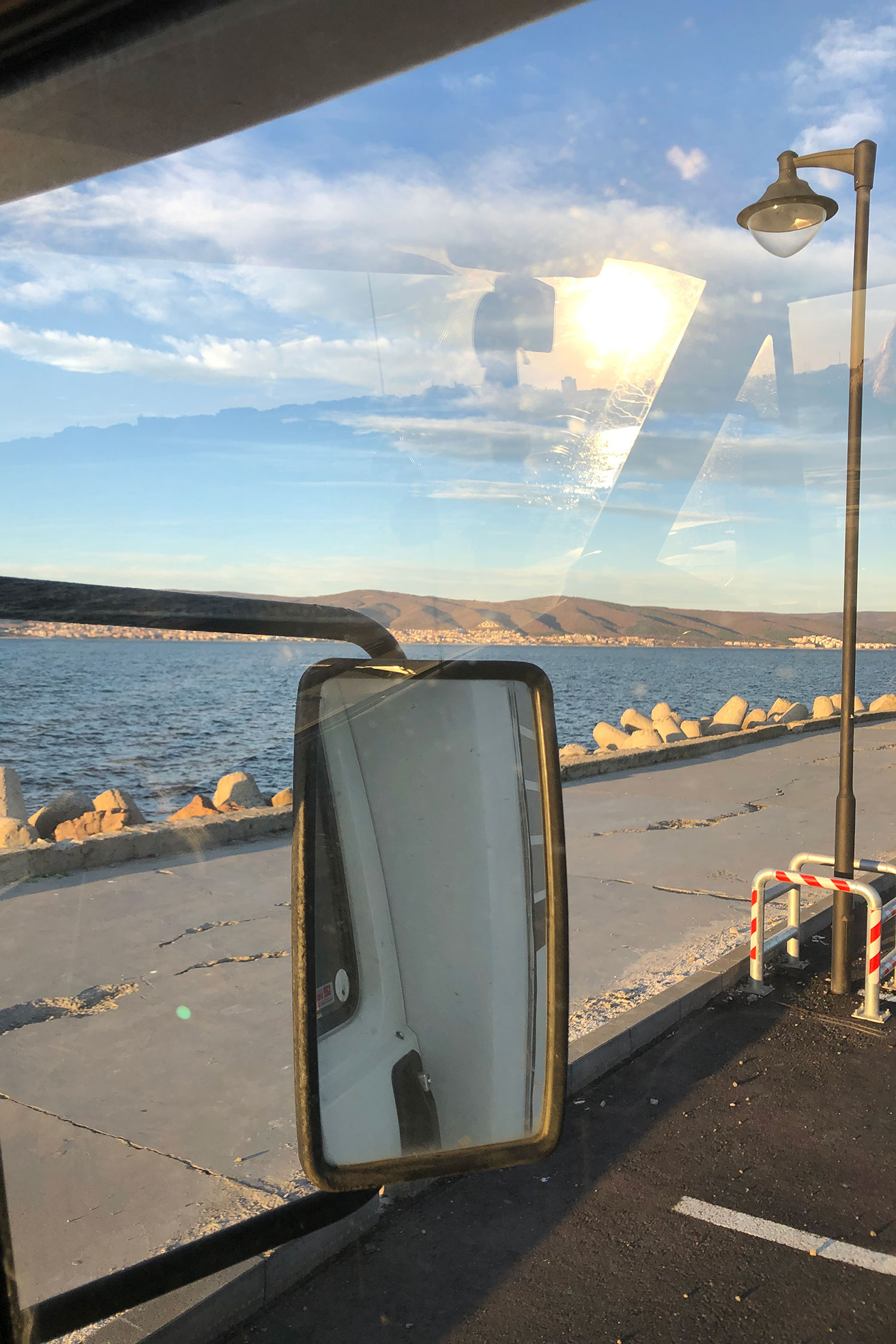
Water
Since we were traveling through Bulgaria with a motorhome, water was something that we were searching for very actively. Unfortunately, water wasn’t available at any gas station – either there wasn’t an option for that, or the water was closed due to the winter season. To fill up our water tank we bought 5-liter water bottles. It isn’t the easiest and cheapest way to have running water but that was the best option for us. The 5-liter water bottles were available at most grocery stores so we didn’t have any problems finding them.
Cash
Most attractions are for free or very little cost but if there is a cost I highly recommend having cash since at some viewpoints credit card wasn’t accepted. In Sofia we didn’t have any problems with the payment method but driving farther away from the capital, for instance visiting Devetashka Cave, which is located in a remote area, you can pay only in cash and the price when we visited was BGN 3. We also were looking forward to visiting the Krushuna Falls nearby but we didn’t have any more cash with us and our credit card wasn’t accepted so we unfortunately ended up skipping this spot.
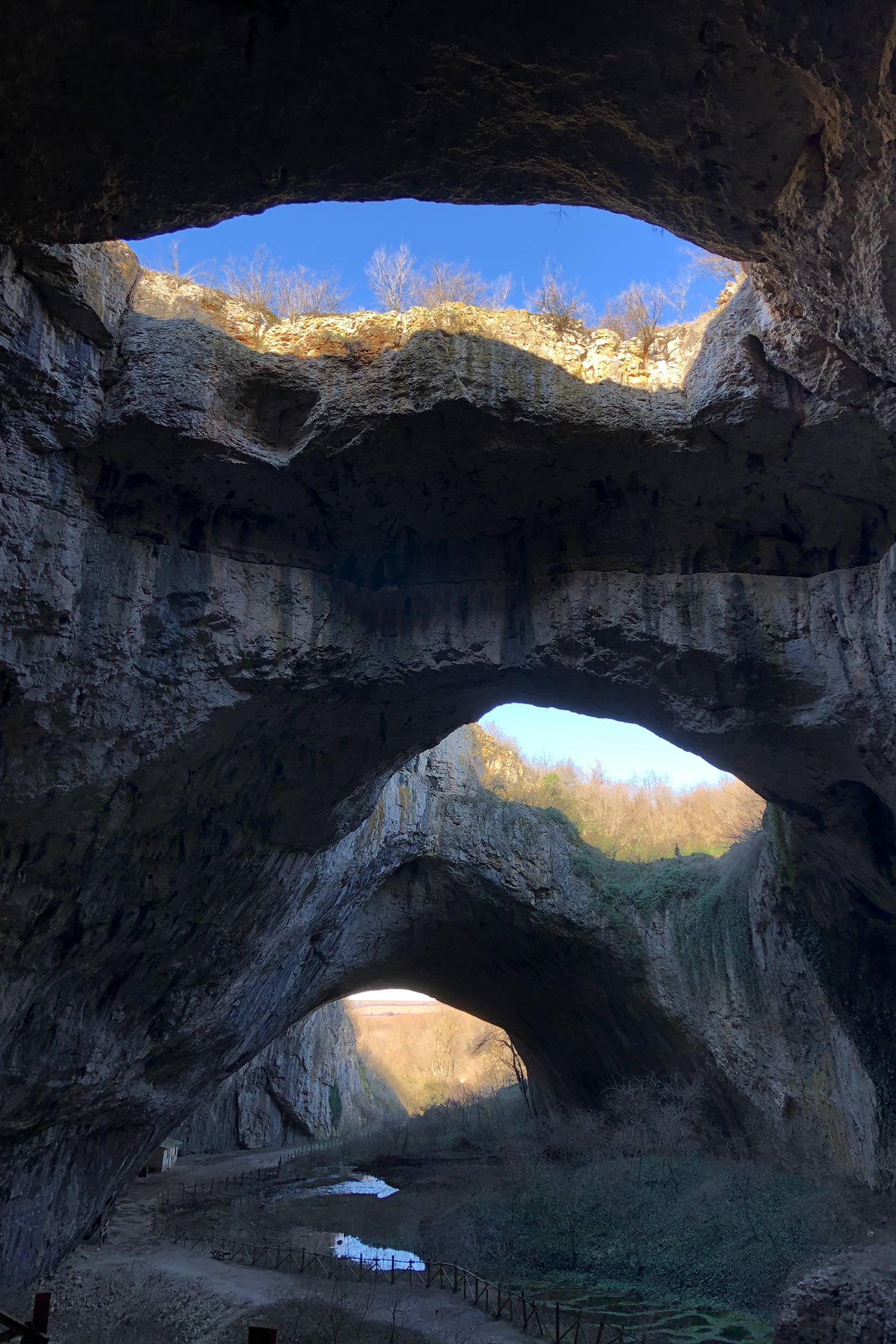
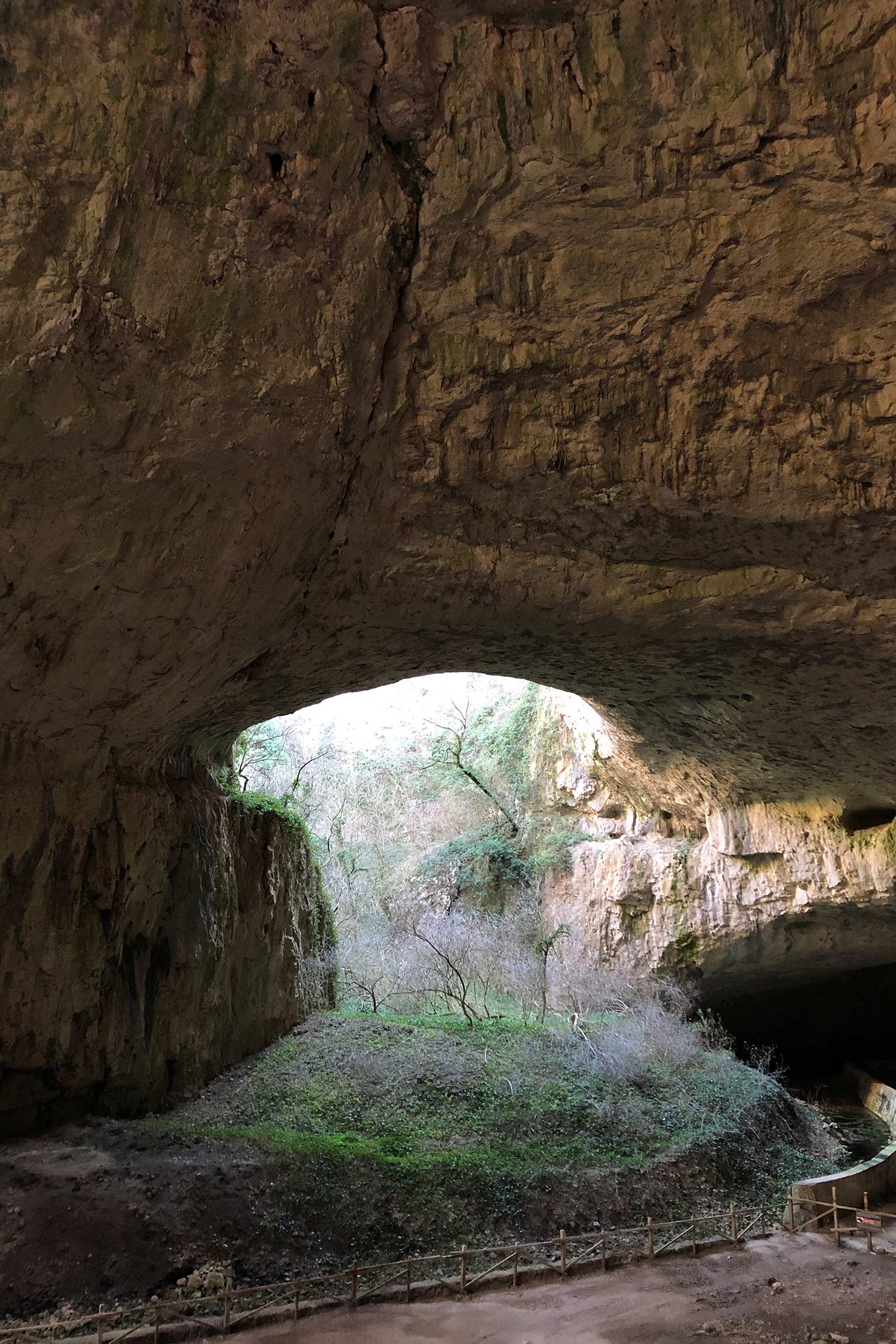
Communist era
Quite a lot of countries have faced communist regimes and Bulgaria isn’t an exception. In Bulgaria, the communist political system lasted from 1944 till 1989. Nowadays the remnants from that time still exist and leave a great imprint on the country’s architecture and culture. One example from the time of the communist regime is the Buzludzha Monument which was built by the Bulgarian communist government and opened in 1981 but was abandoned in 1989 and is located on Buzludzha Peak in the mountains of central Bulgaria. In Sofia, you can join a tour of the city to explore and learn about the period and visit the main landmarks. Learning a country’s history opens a new perspective on the places that you visit, and on the culture and allows you to see the place in a fuller view.
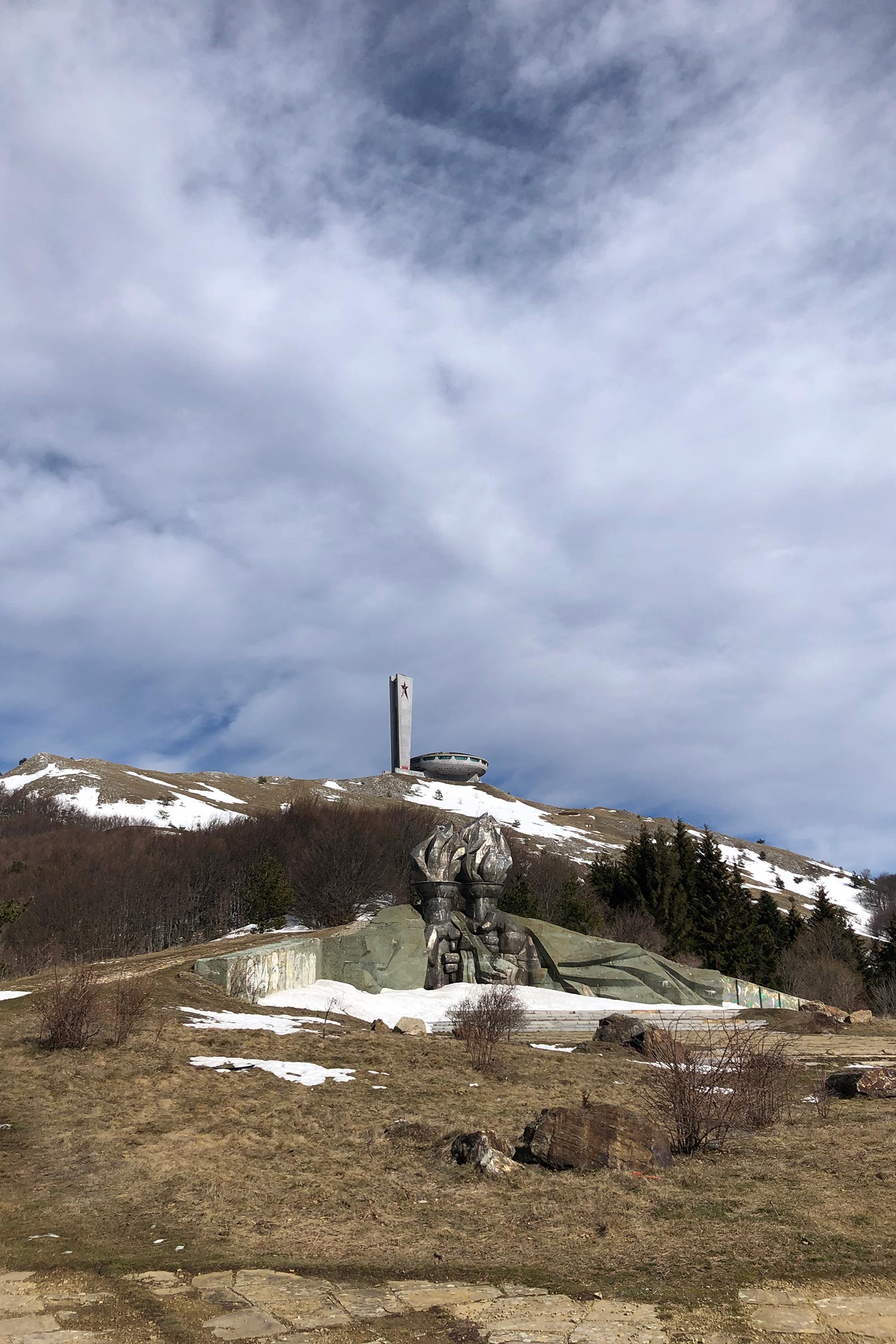
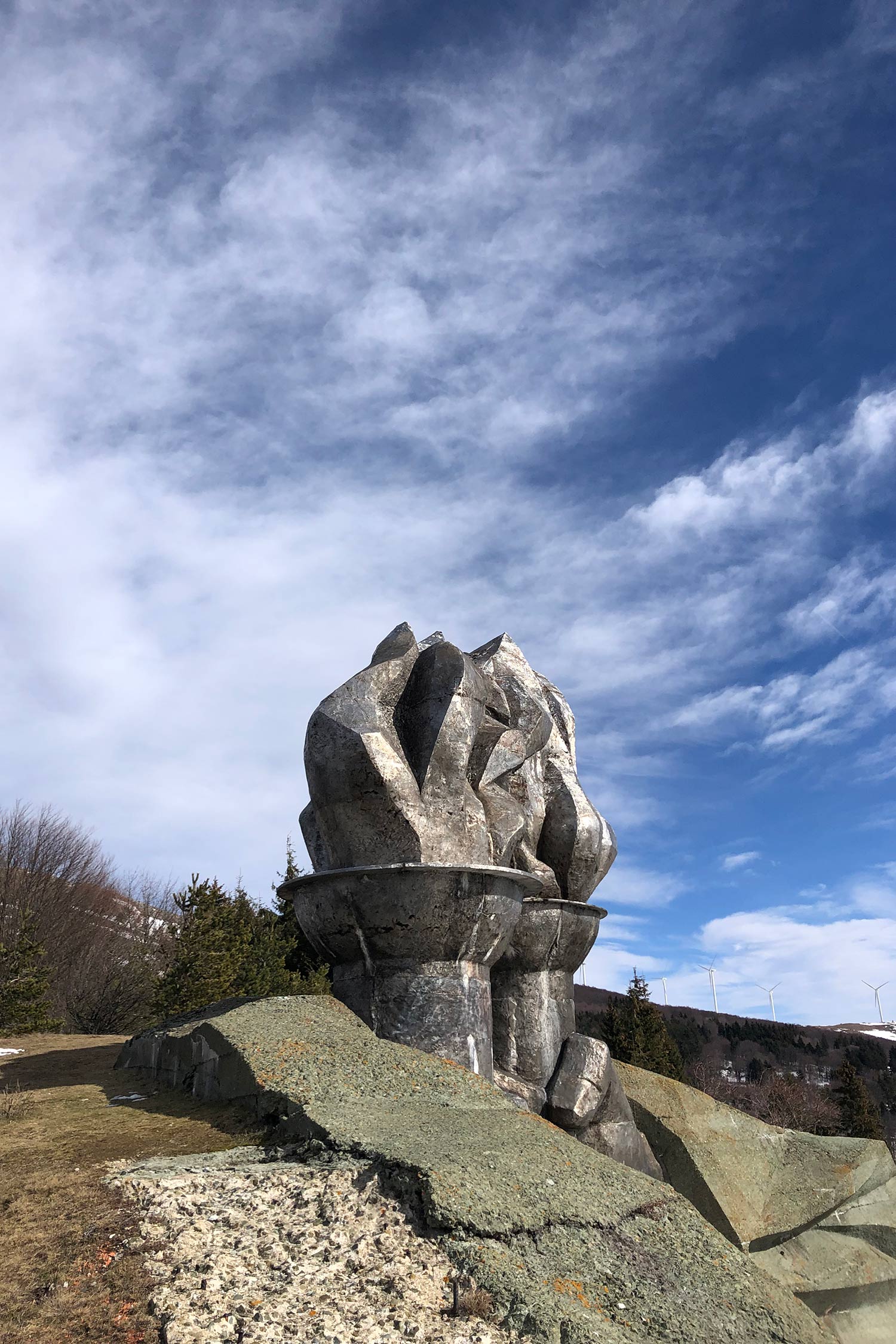
Is it safe?
Bulgaria is a safe country and we didn’t feel uncomfortable in any way during our trip there. But of course, as in any place, you should still be careful of your belongings, of the places that you visit, and where you leave your car. We always search the parking spots before arriving at the destination which is usually on the Park4Night app where other travelers leave their experience on the parking spots. I usually skip a spot if there is even one negative review about breaking into a car or something similar that feels unsafe – you can never be too careful in places that you are not familiar with. I also trust my gut feeling and if I feel that something is off, it’s not worth it to risk it.
People
In Bulgaria, we met so many kind and welcoming people that my heart warms remembering our visit. It is commonly known that people in the Balkan region are very welcoming and kind, and that’s absolutely true. If we ever needed some kind of help or direction, or just in casual interactions in shops and cafes, people were always happy to talk to us and I can’t even describe how heartwarming that was.
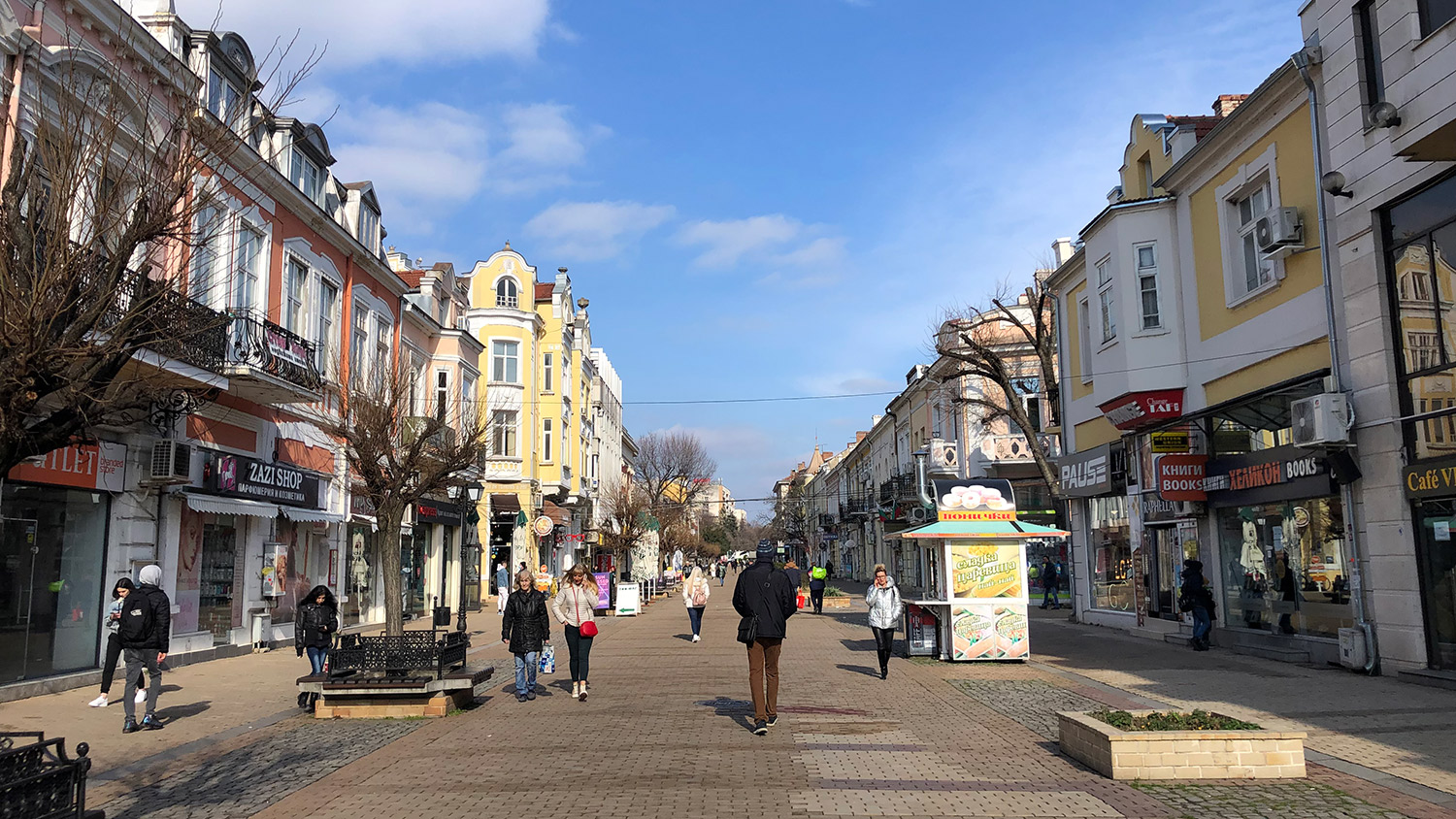
Bulgaria is such a perfect destination for anyone who travels on a budget but also for those who love to explore nature, and the fascinating culture of Bulgaria, meet the kindest people and taste delicious local foods. We would love to return to Bulgaria in the summertime and experience the seaside life when it’s warmer since we were visiting during wintertime but not only for that – I believe there’s so much more to explore in this wonderful country and I strongly recommend anyone, who is interested, to visit it as well.
Check out my blog post about the 7 Places to visit in Bulgaria here!
Latest blog posts
- 8 Things to know about vanlife in the Netherlands
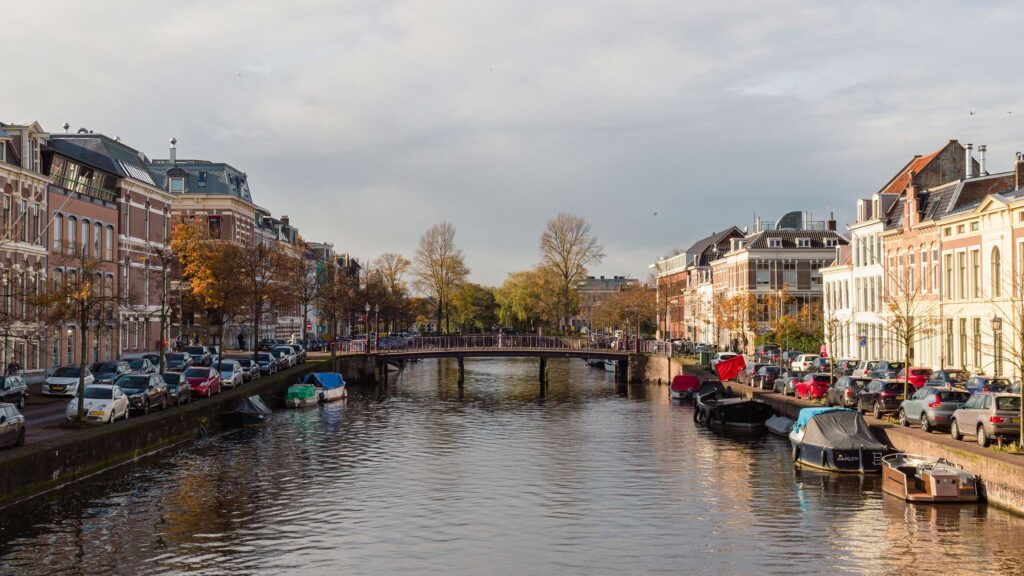
- Places to visit in Amsterdam on a budget-friendly trip

- Places to visit in Utrecht on a one-day budget-friendly trip

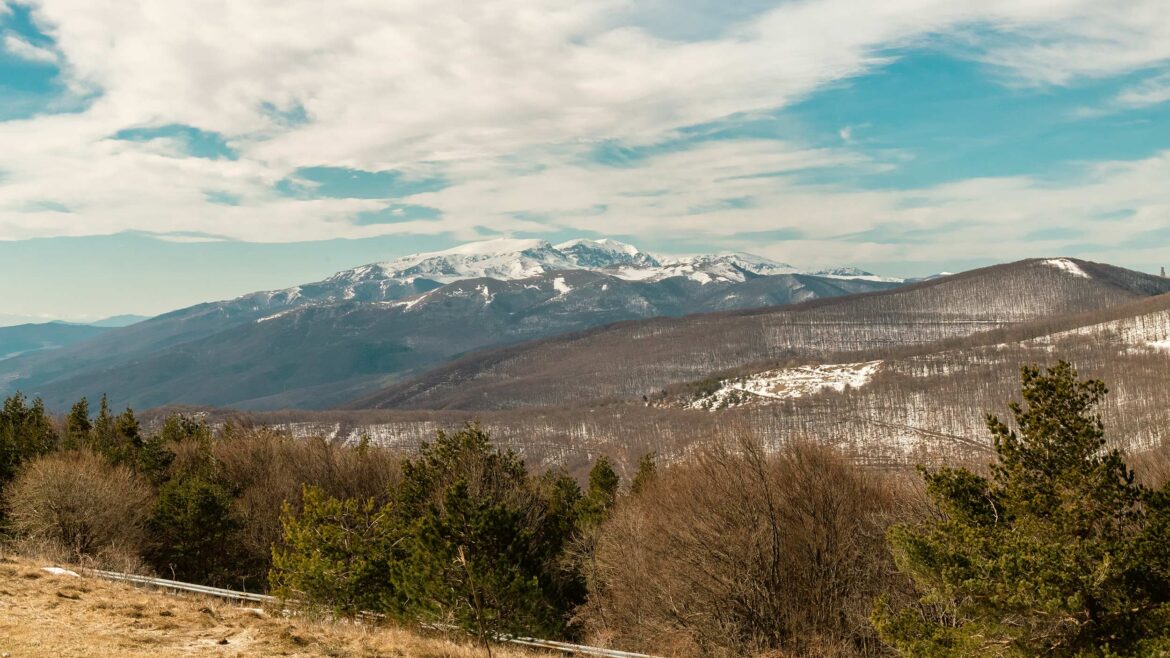
One response to “10 Things to know before traveling to Bulgaria”
[…] To get around the city you can take public transport which is so convenient to use. Read more about the system and prices here. […]